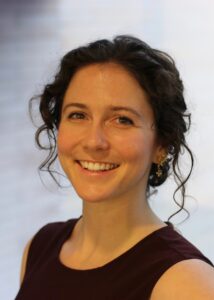Article Summary by Andrea Ford
In recent years, you hear a lot about ’vulnerability’—for example, during the COVID-19 lockdowns in the UK the idea that some people are more vulnerable than others and should therefore be treated differently came up often. We thought it was interesting how vulnerability seemed to be used interchangeably with risk when, in our opinion, they are really different concepts and should be used differently. We had a series of group discussions about this, specifically among those of us concerned with disease and disease risk, which was challenging because we all come from different disciplinary backgrounds more or less adjacent to medical humanities. We concluded that because disease is often thought about in binary terms—someone is either sick or well, normal or abnormal—vulnerability is a useful concept to break up this binary and talk about all the grey zone in between. This power is diminished when vulnerability is treated as something that can be calculated, quantified, and standardized. Vulnerability is associated with a lot of ambiguity and ambivalence—it is universal but unevenly distributed, it is admirable in some contexts but shameful in others. We call this “indeterminacy”. Rather than making policies that apply standard and universal rules about vulnerability, we argue that policies to protect vulnerable people need to be designed with those communities and be variable across contexts—in line with contemporary social justice movements that require non-hierarchical and non-universal approaches to problems and solutions.
Listen to the author discuss the article:
Read the full article on the Medical Humanities journal website.
 This paper is the outcome of a genuinely collective process of reflection and writing, drawing on the authors’ different disciplinary backgrounds. The Centre for Biomedicine, Self and Society (CBSS) at the University of Edinburgh enabled us to come together for this project, where we spanned career stages from full professors to visiting scholars to postdoctoral fellows. Andrea Ford, the lead author responsible for the majority of the writing, is a Wellcome Trust Senior Research Fellow in cultural and medical anthropology at CBSS where her research explores childbearing, menstruation, endometriosis, and hormones within frames of reproductive, environmental, and social justice. She has worked, taught, and studied at the University of Chicago, University of Ghana, Stanford University, UC Berkeley, FrameWorks Institute, UK NHS, and UK Young Academy.
This paper is the outcome of a genuinely collective process of reflection and writing, drawing on the authors’ different disciplinary backgrounds. The Centre for Biomedicine, Self and Society (CBSS) at the University of Edinburgh enabled us to come together for this project, where we spanned career stages from full professors to visiting scholars to postdoctoral fellows. Andrea Ford, the lead author responsible for the majority of the writing, is a Wellcome Trust Senior Research Fellow in cultural and medical anthropology at CBSS where her research explores childbearing, menstruation, endometriosis, and hormones within frames of reproductive, environmental, and social justice. She has worked, taught, and studied at the University of Chicago, University of Ghana, Stanford University, UC Berkeley, FrameWorks Institute, UK NHS, and UK Young Academy.